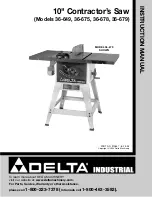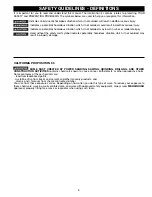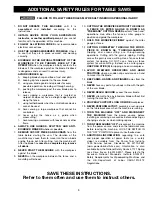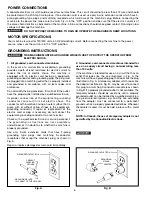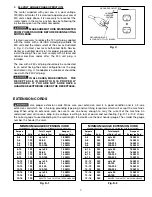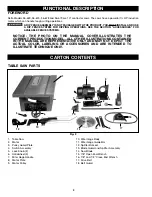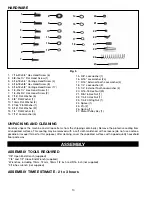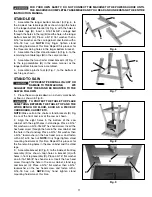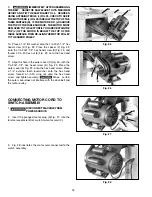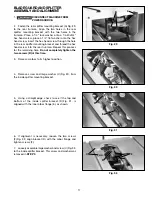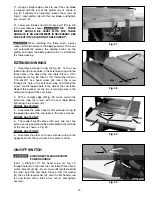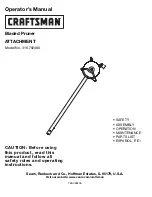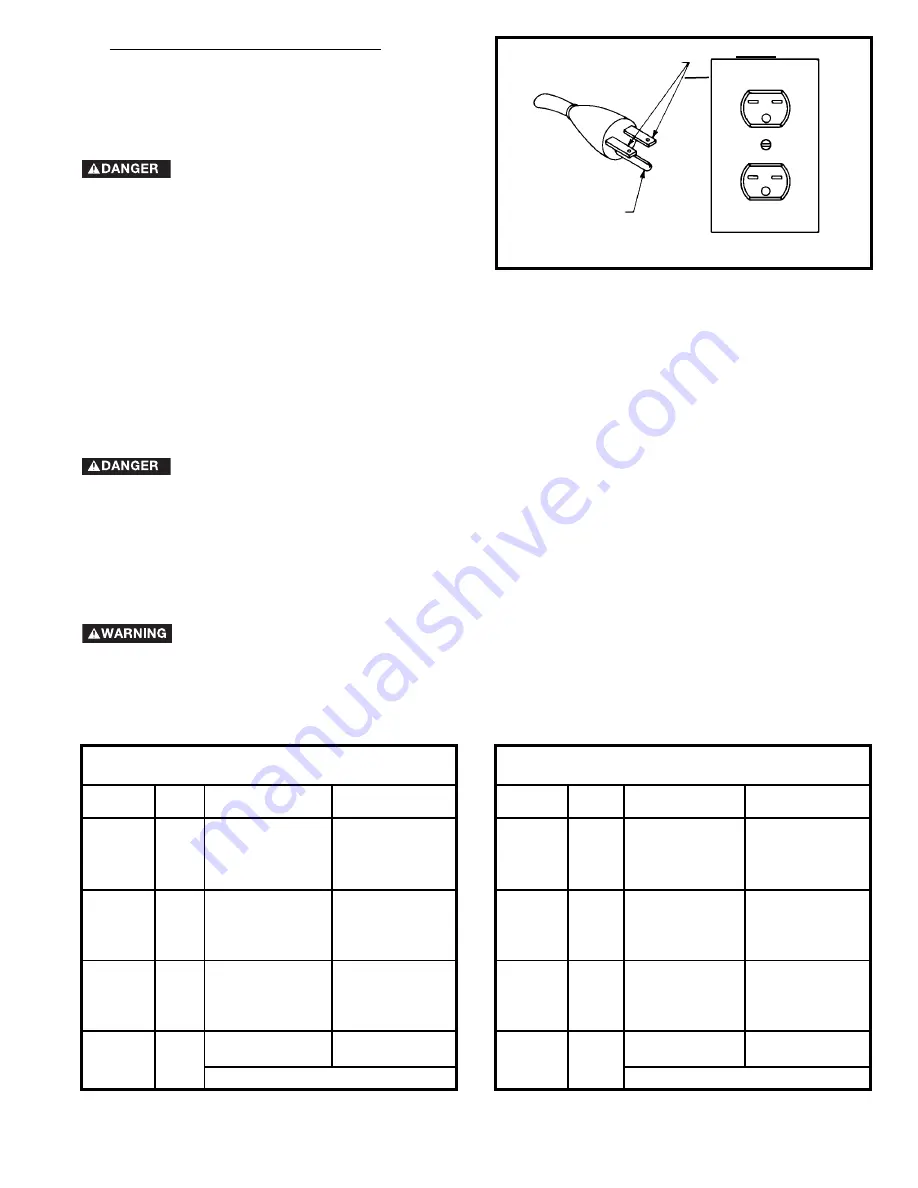
7
Fig. C
GROUNDED OUTLET BOX
CURRENT
CARRYING
PRONGS
GROUNDING BLADE
IS LONGEST OF THE 3 BLADES
EXTENSION CORDS
Use proper extension cords. Make sure your extension cord is in good condition and is a 3-wire
extension cord which has a 3-prong grounding type plug and matching receptacle which will accept the machine’s
plug. When using an extension cord, be sure to use one heavy enough to carry the current of the machine. An
undersized cord will cause a drop in line voltage, resulting in loss of power and overheating. Fig. D-1 or D-2, shows
the correct gauge to use depending on the cord length. If in doubt, use the next heavier gauge. The smaller the gauge
number, the heavier the cord.
Fig. D-1
Fig. D-2
MINIMUM GAUGE EXTENSION CORD
RECOMMENDED SIZES FOR USE WITH STATIONARY ELECTRIC MACHINES
Ampere
Total Length
Gauge of
Rating
Volts
of Cord in Feet
Extension Cord
0-6
120
up to 25
18 AWG
0-6
120
25-50
16 AWG
0-6
120
50-100
16 AWG
0-6
120
100-150
14 AWG
6-10
120
up to 25
18 AWG
6-10
120
25-50
16 AWG
6-10
120
50-100
14 AWG
6-10
120
100-150
12 AWG
10-12
120
up to 25
16 AWG
10-12
120
25-50
16 AWG
10-12
120
50-100
14 AWG
10-12
120
100-150
12 AWG
12-16
120
up to 25
14 AWG
12-16
120
25-50
12 AWG
12-16
120
GREATER THAN 50 FEET NOT RECOMMENDED
MINIMUM GAUGE EXTENSION CORD
RECOMMENDED SIZES FOR USE WITH STATIONARY ELECTRIC MACHINES
Ampere
Total Length
Gauge of
Rating
Volts
of Cord in Feet
Extension Cord
0-6
240
up to 50
18 AWG
0-6
240
50-100
16 AWG
0-6
240
100-200
16 AWG
0-6
240
200-300
14 AWG
6-10
240
up to 50
18 AWG
6-10
240
50-100
16 AWG
6-10
240
100-200
14 AWG
6-10
240
200-300
12 AWG
10-12
240
up to 50
16 AWG
10-12
240
50-100
16 AWG
10-12
240
100-200
14 AWG
10-12
240
200-300
12 AWG
12-16
240
up to 50
14 AWG
12-16
240
50-100
12 AWG
12-16
240
GREATER THAN 100 FEET NOT RECOMMENDED
3.
240 VOLT SINGLE PHASE OPERATION:
The motor supplied with your saw is a dual voltage,
120/240 volt motor. If it is desired to operate your saw at
240 volts, single phase, it is necessary to reconnect the
motor leads in the motor junction box by following the
in-structions given on the motor nameplate.
MAKE SURE MOTOR IS DISCONNECTED
FROM POWER SOURCE BEFORE RECONNECTING
MOTOR LEADS
.
It is also necessary to replace the 120 volt plug, supplied
with the motor, with a UL/CSA Listed plug suitable for
240 volts and the rated current of the saw as illustrated
in Fig. C. Contact your local Authorized Delta Service
Center or qualified electrician for proper procedures to
install the plug. The saw must comply with all local and
national electrical codes after the 240 volt plug is
installed.
The saw with a 240 volt plug should only be connected
to an outlet having the same configuration as the plug
illustrated in Fig. C. No adapter is available or should be
used with the 240 Volt plug.
IN ALL CASES, MAKE CERTAIN THE
R E C E P TA C L E I N Q U E S T I O N I S P R O P E R LY
G R O U N D E D . I F Y O U A R E N O T S U R E H AV E A
QUALIFIED ELECTRICIAN CHECK THE RECEPTACLE.

